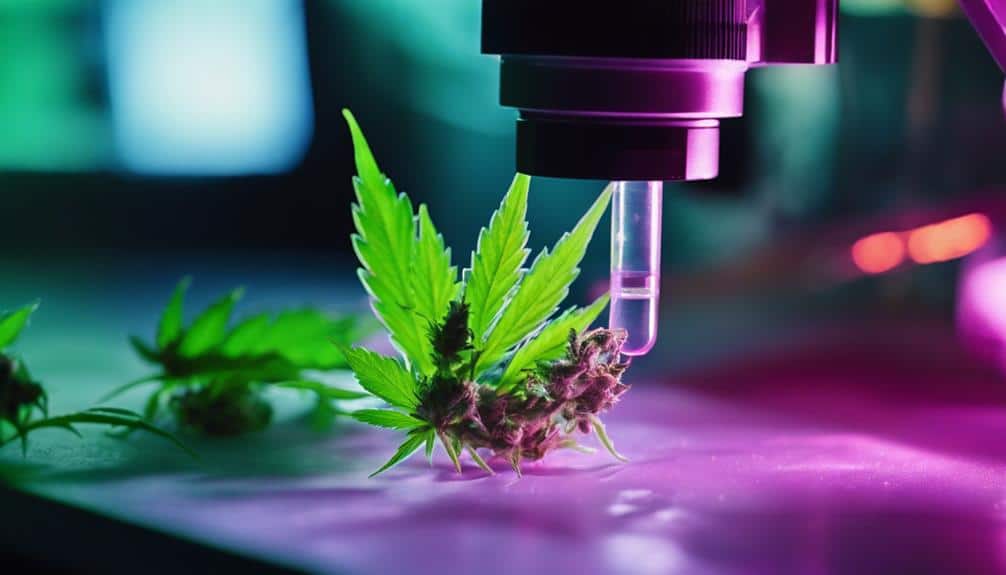Despite any preconceptions you might have about cannabis, it’s time to look past the smoke and mirrors. Recent studies have highlighted its exceptional antioxidant properties. That’s right, cannabis isn’t just about recreational use anymore. It’s emerging as a potential powerhouse in health and wellness.
Table of Contents
But how exactly does cannabis possess antioxidant power and what does it mean for your health? Let’s embark on this journey of discovery together, where we’ll explore the science behind this intriguing possibility.
The Science Behind Antioxidants

To understand the antioxidant power of cannabis, you first need to grasp the science behind antioxidants. These are powerful molecules that protect your cells from damage caused by free radicals. This damage, known as oxidative stress, is one of the primary mechanisms leading to many chronic diseases.
Now, let’s delve into the concept of oxidative stress mechanisms. Imagine your body as a battlefield. Free radicals are invaders wreaking havoc on your cells, proteins, and even your DNA. Oxidative stress occurs when these free radicals outnumber your body’s natural antioxidants leading to cell damage and eventually disease.
This is where natural sources of antioxidants step in. They’re like knights for your body bravely battling and neutralizing free radicals thus protecting your cells from damage. These antioxidants are found in a variety of fruits, vegetables, and other plant-based foods but they’re not exclusive to produce aisle alone; recent studies have shown that cannabis too is a potent source of antioxidants.
Cannabis: A Brief Overview
Shifting our focus from the role of antioxidants to the plant source in question, let’s get a quick rundown on cannabis. This genus of flowering plants in the family Cannabaceae has been used for centuries for medicinal, recreational, and industrial purposes. Its various strains offer a diversity of therapeutic benefits attracting interest from health and wellness professionals globally.
Here’s a snapshot of its increasing relevance:
- Cannabis Legislation: Many countries are adopting more liberal cannabis laws recognizing its potential for medical use and economic growth.
- Strains Diversity: Over 700 strains of cannabis exist each with unique therapeutic properties.
- Research Opportunities: The changing legal landscape is paving the way for more in-depth cannabis research.
- Health and Wellness: The plant’s potential antioxidant, anti-inflammatory, and analgesic effects are driving its inclusion in health and wellness regimens.
In essence, evolving cannabis legislation coupled with an appreciation for strain diversity is reshaping public and scientific perspectives on cannabis. As we delve deeper you’ll understand why this plant might become a staple in health and wellness regimes.
The Antioxidants in Cannabis Explained

Diving into the heart of the matter you’ll find that cannabis is packed with antioxidants, compounds that play an essential role in protecting our body against oxidative stress and related diseases. These antioxidants found in abundance in certain strains of cannabis are key to maintaining overall health.
Now, when it comes to harnessing these antioxidants, cannabis extraction methods play a pivotal role. Extraction processes help isolate and concentrate these beneficial compounds making them more bioavailable for our bodies. However, not all extraction methods are created equal. Some methods may degrade the antioxidants while others preserve and enhance their potency. It’s crucial to understand and choose the right method for maximum benefit.
Next, let’s touch upon antioxidant-rich strains. Certain strains of cannabis are more laden with antioxidants than others. It’s not just about the quantity but also the quality of the antioxidants present. Identifying and using these antioxidant-rich strains can make a significant difference to your health.
In serving others it’s important to guide them towards these beneficial strains and effective extraction methods. This knowledge can empower them to make informed decisions utilizing the antioxidant power of cannabis to its fullest.
Potential Health Benefits of Cannabis Antioxidants
Now that you’re familiar with the antioxidant-rich strains of cannabis and the importance of extraction methods let’s explore potential health benefits these antioxidants can offer. As you delve into cannabinoid therapies it’s crucial to understand how antioxidant bioavailability can impact your health.
- Reduced Inflammation: Cannabis antioxidants have anti-inflammatory properties that could potentially reduce pain and inflammation in conditions like arthritis.
- Neuroprotective Effects: These antioxidants may guard against neurodegenerative diseases such as Alzheimer’s and Parkinson’s disease.
- Heart Health: They could also be beneficial for heart health by preventing damage from harmful molecules known as free radicals.
- Cancer Prevention: Lastly, the antioxidants in cannabis may help in the prevention of certain types of cancers.
These are just a few of the potential benefits of cannabis antioxidants. Remember, the efficacy of these benefits largely depends on the bioavailability of the antioxidants which is significantly influenced by extraction methods used. It’s essential to source your cannabis from reliable providers who prioritize quality extraction techniques.
The power of cannabis antioxidants offers a promising outlook for those seeking novel natural approaches to health and wellness.
Incorporating Cannabis Into Your Health Regimen

Regularly incorporating cannabis into your health regimen could potentially unlock a multitude of benefits thanks to its rich antioxidant profile. But before you jump in you’ll need to understand various cannabis consumption methods and the importance of tailoring dosage to your specific needs.
Smoking, vaporizing, edibles, and topicals are among common cannabis delivery methods. Smoking and vaporizing provide quick effects but may not be suitable for those with respiratory issues. Edibles offer longer-lasting effects but take longer to kick in. Topicals are great for localized relief and don’t induce psychoactive effects.
Tailoring dosage is equally important. Starting low and gradually increasing is a common mantra in the cannabis community allowing you to find your optimal dosage without overdoing it. Remember, cannabis affects everyone differently due to factors like metabolism tolerance and body chemistry.
You may want to consult with a healthcare provider knowledgeable about cannabis to help you establish a safe and effective regimen. They can consider your health status lifestyle and goals and guide you towards the most beneficial method and dosage. So, it’s not just about adding cannabis to your routine it’s about doing it mindfully and responsibly.
Conclusion
You’ve just discovered the powerful potential of cannabis antioxidants. Studies reveal that THC, a compound in cannabis, has 20 times the anti-inflammatory power of aspirin. That’s impressive! As you navigate your health journey consider incorporating cannabis into your regimen. It’s not just about getting high; it’s about harnessing the antioxidant power of this plant for your wellness. Remember, it’s always important to consult with your doctor before starting any new health practice.
I’d like to personally invite you to visit us at Cannabis Docs of Delaware to learn more about the incredible health benefits of cannabis. Our friendly and knowledgeable team is always ready to help you explore how cannabis can be part of your health journey. If you prefer, you can also give us a call. We’d love to hear from you and answer any questions you might have. Be assured that our priority is your wellness so come along let’s embark on this journey towards health and well-being together!

